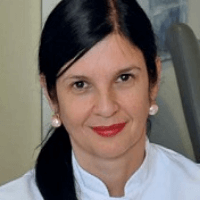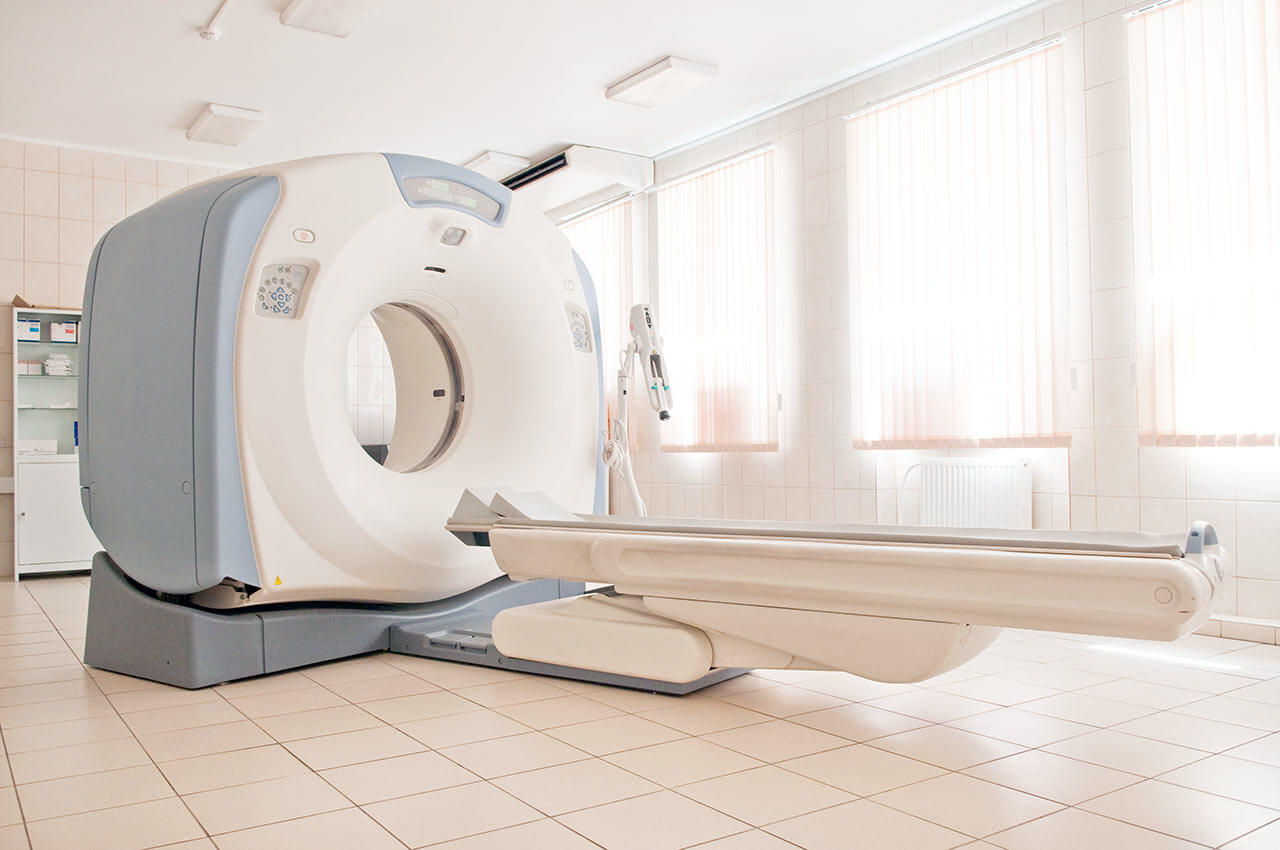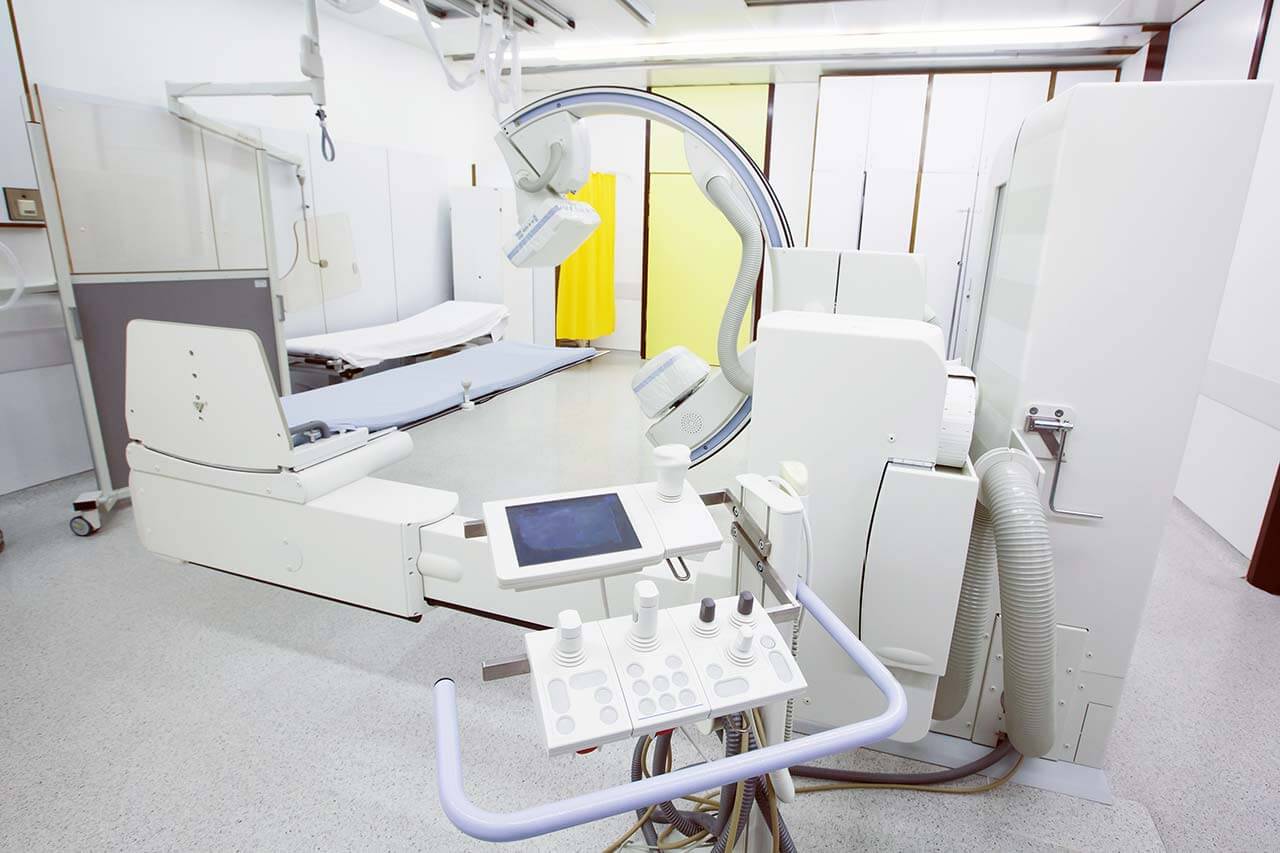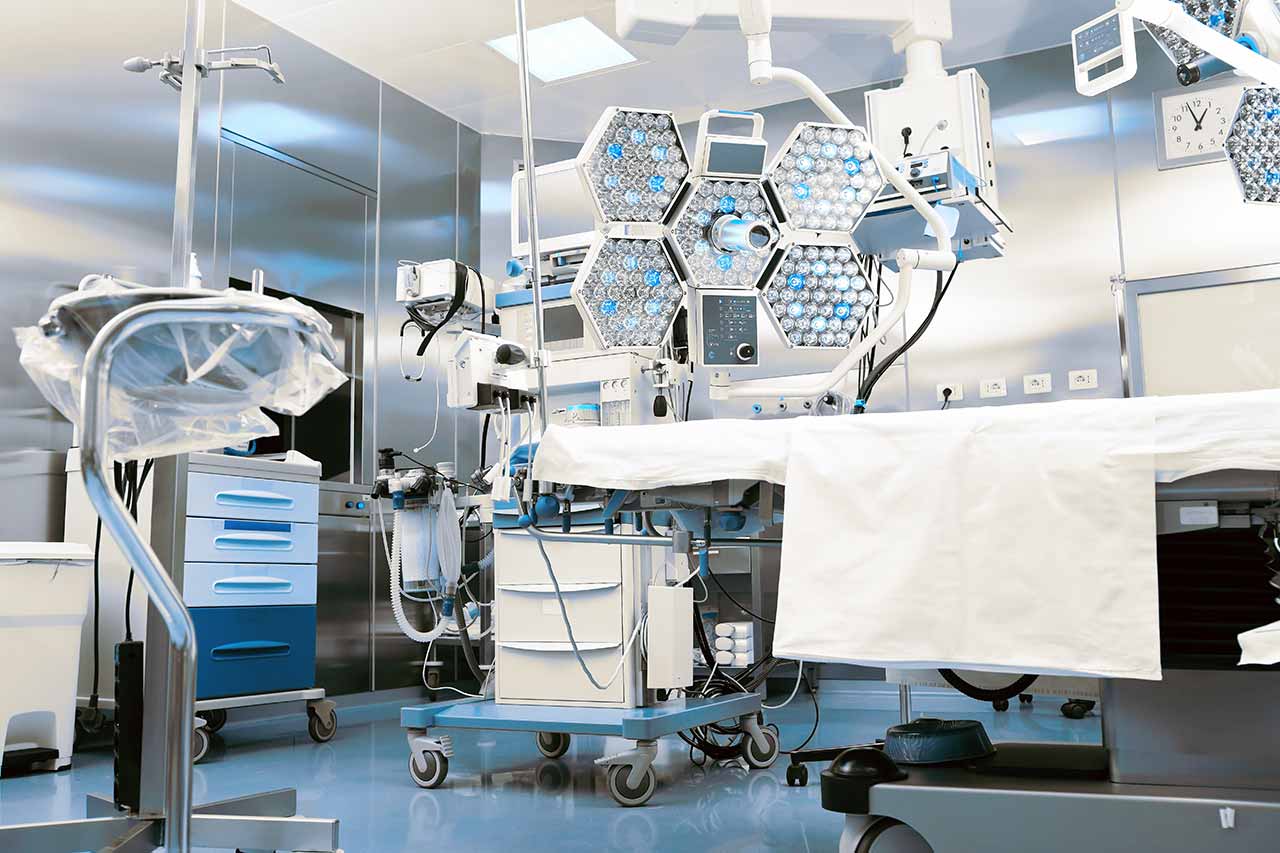
The program includes:
- Initial presentation in the clinic
- clinical history taking
- review of medical records
- physical examination
- laboratory tests:
- complete blood count
- general urine analysis
- biochemical analysis of blood
- TSH-basal, fT3, fT4
- tumor markers
- inflammation indicators
- indicators of blood coagulation
- ultrasound scan
- CT/MRI scan
- course of radiotherapy
- nursing services
- full hospital accommodation
- control examinations
- consultations of related specialists
- explanation of individual treatment plan
How program is carried out
During the first visit, the doctor will conduct a clinical examination and go through the results of previous laboratory tests and instrumental examinations. After that, you will undergo an additional examination, including complete blood count, laboratory assessment of liver and kidney function. Based on the received results, the physician will conduct radiotherapy planning with the help of CT or MRI, make the permanent tattoo marks on the skin and conduct CT simulation in order to assess the accuracy of the rays and the radiation dose. If necessary, related medical specialists will be involved in the elaboration of a treatment regimen (tumor board).
Radiation therapy is carried out as the inpatient procedure, with mandatory admission to the hospital. Before each session the physician will assess your general condition and the marks on the skin. After that, you will be placed in a shielded radiation therapy room, on a special table.
Each radiation therapy session lasts less than half an hour (including preparation). All this time, doctors and nurses are monitoring your condition, you can communicate with them through a loudspeaker. The procedure is completely painless. Depending on the planned course of treatment, you will have from 1 to 3-5 sessions of radiation therapy a week.
After the completion of the radiation therapy course, you will undergo control examinations aimed at assessing your condition and efficacy of treatment. After that you will receive the medical report with detailed recommendations regarding further follow-up and treatment. In the future, you will be able to have a distant consultation with your attending physician and schedule the next course of treatment, if necessary.
Required documents
- Medical records
- MRI/CT scan (not older than 3 months)
- Bone marrow biopsy results (if available)
Service
You may also book:
 BookingHealth Price from:
BookingHealth Price from:
About the department
According to the results of an independent evaluation of the Focus magazine, the Department of Radiation Therapy at the University Hospital Freiburg ranks among the top German Radiation Therapy Centers!
The department offers the full range of modern therapies in this field. The department specializes in stereotactic radiation therapy, which allows to determine the precise coordinates and sizes of tumors for further irradiation. Stereotactic radiation therapy is successfully used in the treatment of brain, lung, liver, kidney tumors and bone metastases. The doctors have at their disposal state-of-art devices and technologies, including the Varian TrueBeam STX Novalis linear accelerator. The department is headed by Prof. Dr. med. Anca-Ligia Grosu.
The department offers the following therapeutic options:
- Stereotactic radiation therapy / radiosurgery
- Intensity-modulated radiation therapy (IMRT)
- Imaging-guided radiation therapy (IGRT)
- Intraoperative radiation therapy (IORT)
- Brachytherapy
- Interstitial hyperthermia
- Tomotherapy
- And other diagnostic and therapeutic methods
The department also specializes in intensity-modulated radiation therapy (IMRT). The indication for its usage is the location of the tumor near or inside the organs with a high sensitivity to radiation or irregular structure. This method ensures the exact correspondence of the beam shape to the tumor volume by modulating and controlling the intensity of radiation, as well as makes it possible to focus a high dose of a radiation on the certain areas of the tumor while minimizing the influence on the surrounding healthy organs.
Another key option of the department is the intraoperative radiation therapy (IORT). In particular, an innovative organ-preserving treatment of breast cancer has become possible thanks to the usage of this technique. At the same time, the state-of-art Intrabeam device is used for irradiation, which makes it possible to aim the rays on the tumor bed during the surgical intervention and reduce the risk of carcinoma relapse in the future. It should be also noted that the combination of intraoperative radiation therapy and hyperthermic irradiation (tumor overheating) significantly reduces the duration of the treatment course.
The service range of the department includes the diagnostics and treatment of the following diseases:
- Tumors of the eye and its appendages
- Skin tumors
- Benign and malignant breast tumors
- Tumors of the female genital organs
- Head and neck tumors
- Ear tumors
- All oncological diseases
- Cancers in children and adolescents
- Benign and malignant brain diseases
- Diseases of the brain membranes
- Arthropathy
- Myopathy
- Diseases of the synovial membrane of the joint and tendons
- Osteopathy and chondropathy
- Tumors of the musculoskeletal system
- Diseases of the male genital organs
- Other diseases of the urinary tract
- Other diseases
Curriculum vitae
Education, Training, Professional Experience
- 1981 - 1989 Medical School, University of Cluj-Napoca, Romania.
- 1990 - 1991 Department of Neurology, Harlaching Hospital, Munich.
- 1992 - 1995 Department of Radiology, Neuroradiology, Rechts der Isar Hospital, Technical University of Munich.
- 1995 - 2000 Department of Radiation Therapy, Rechts der Isar Hospital, Technical University of Munich.
- 2000 Board Certification, Radiation Therapy.
- 2003 Habilitation (Postdoctoral lecture qualification) Department of Radiation Therapy, Rechts der Isar Hospital, Technical University of Munich "Innovative techniques for high precision radiotherapy in brain tumours".
- 2000 - 2006 Assistant Medical Director (Senior Physician), Department of Radiation Therapy, Rechts der Isar Hospital, Technical University of Munich.
- 2006 - 2007 Harvard Medical School, Massachusetts General Hospital, Department of Radiation Therapy, Proton Therapy Center, Boston, USA.
- 2007 Professor and Medical Director of the Department of Radiation Therapy, University Hospital Freiburg.
Academic and Professional Appointments
- Vice Dean, Faculty of Medicine, University of Freiburg, Germany.
- Adjunct Professor, Ohio State University, USA.
- Member of the Executive Committee German Neurooncology Working Group (NOA).
- Member of the Executive Committee of the Comprehensive Cancer Center at the University Hospital Freiburg.
- Chair of the Hanns Langendorff Committee.
Photo of the doctor: (с) Universitätsklinikum Freiburg
About hospital
The University Hospital Freiburg is famous for its rich history and is one of the oldest and most prestigious medical facilities in Germany (one of the three best medical institutions in the country). The hospital was based on the Faculty of Medicine of the Albert Ludwig University of Freiburg, which celebrated its 550th anniversary in 2007. It should be noted that the hospital is proud of its world-renowned specialists, many of whom during their work here have become Nobel laureates.
The medical facility represents all fields of modern medicine. It consists of 42 departments, 11 institutes and 10 interdisciplinary centers. The highly qualified doctors of the hospital deal with the treatment and rehabilitation of patients with both common and rare diseases. All departments and institutes of the hospital take an active part in fundamental researches of international scale, due to which patients have access to the very latest achievements of medicine, advanced diagnostic methods, state-of-the-art medical equipment and proven effective methods of therapy.
The hospital has a variety of medical achievements, for example, the world's first TIPS procedure, the first implantation of the Jarvik-2000 artificial heart in Europe, the first robotic-assisted surgery on the brain, and the first combined cardiopulmonary transplantation in the land of Baden-Württemberg. In 2004, the University Hospital Freiburg became the first German hospital, which performed kidney transplantation in the incompatibility of blood groups. At the moment, the hospital belongs to medical centers with the greatest experience in performing such an operation.
An interdisciplinary approach to treatment, highly qualified staff, as well as individual patient care and a pleasant environment are key to the hospital’s success.
Photo: (c) depositphotos
Accommodation in hospital
Patients rooms
The patients of the hospital are provided with comfortable rooms with a pleasant design, which create a conducive atmosphere for recovery. The standard furnishing of the patient room includes a telephone, a free radio and TV, a device for calling medical staff, lockers and a safe, an adjustable bed, a chair and a table. The pediatric departments are designed with play areas. The patient may be accommodated in a single or double enhanced-comfort room (for example, with an ensuite bathroom) at an additional cost.
Meals and Menus
The patients are offered good three meals a day with a large selection of dishes. The patients inform about their wishes to the menu in advance, and this information is transmitted to the kitchen. Throughout the day, patients may drink mineral water and tea, which can be found in the department on special tables. The bedridden patients receive drinks from the nursing staff. Other drinks may be purchased at the hospital’s cafeterias and bistro, where patients can come along with visitors.
If you do not eat some products due to intolerance or other personal reasons, please notify the nursing staff in advance, so that all your wishes to be taken into account when preparing the menu.
Further details
Standard rooms include:
Television
All patient rooms have a free radio and TV. The patients can also watch the hospital’s own 24-hour channel with a varied program and interesting information.
Accompanying person
At the availability of free beds, the accompanying person may be accommodated in the same room with the patient, at an additional cost. In addition, the hospital offers special accommodation conditions for patients requiring long-term hospitalization. Parents have at their disposal special apartments in the children's hospital.





